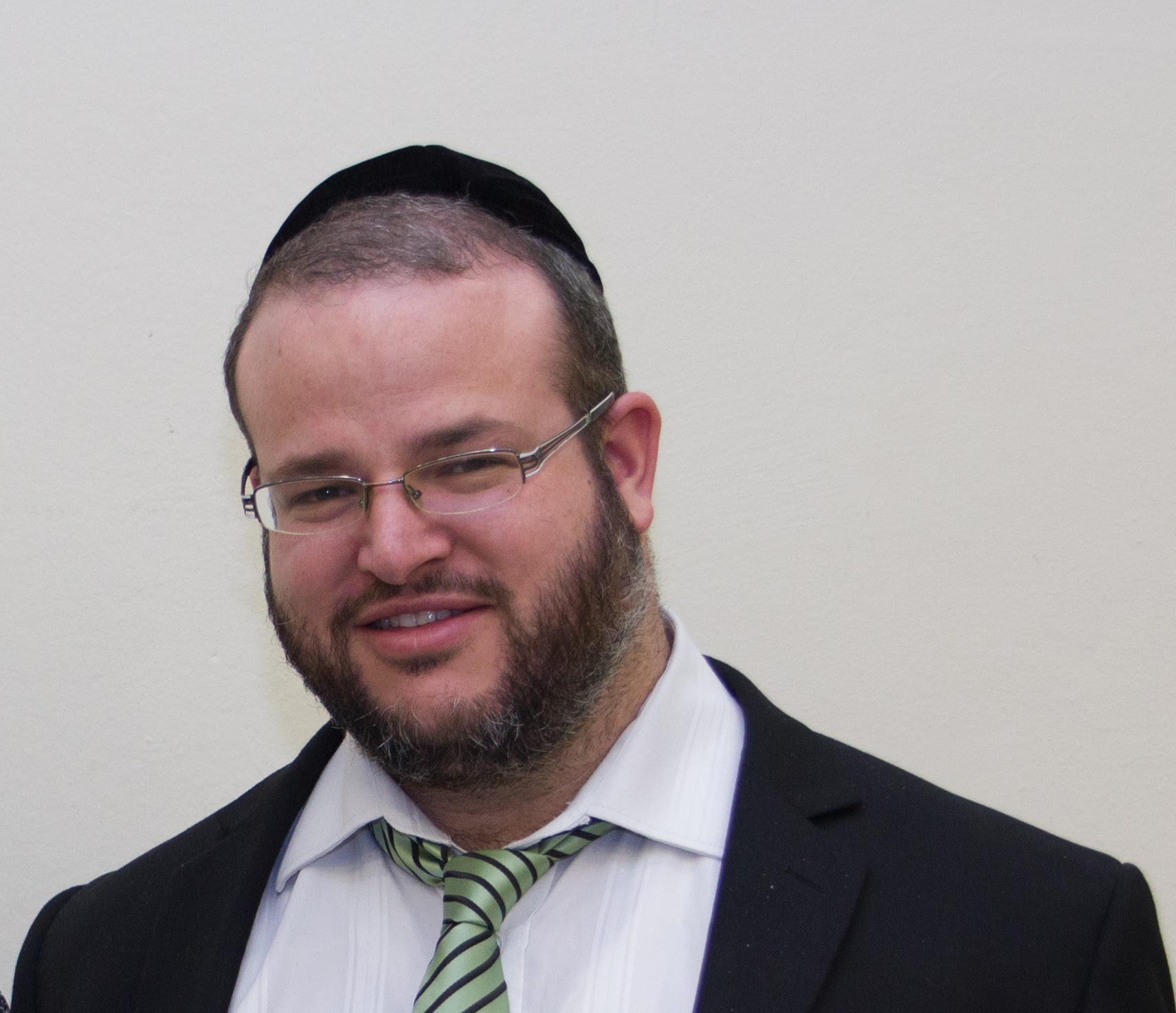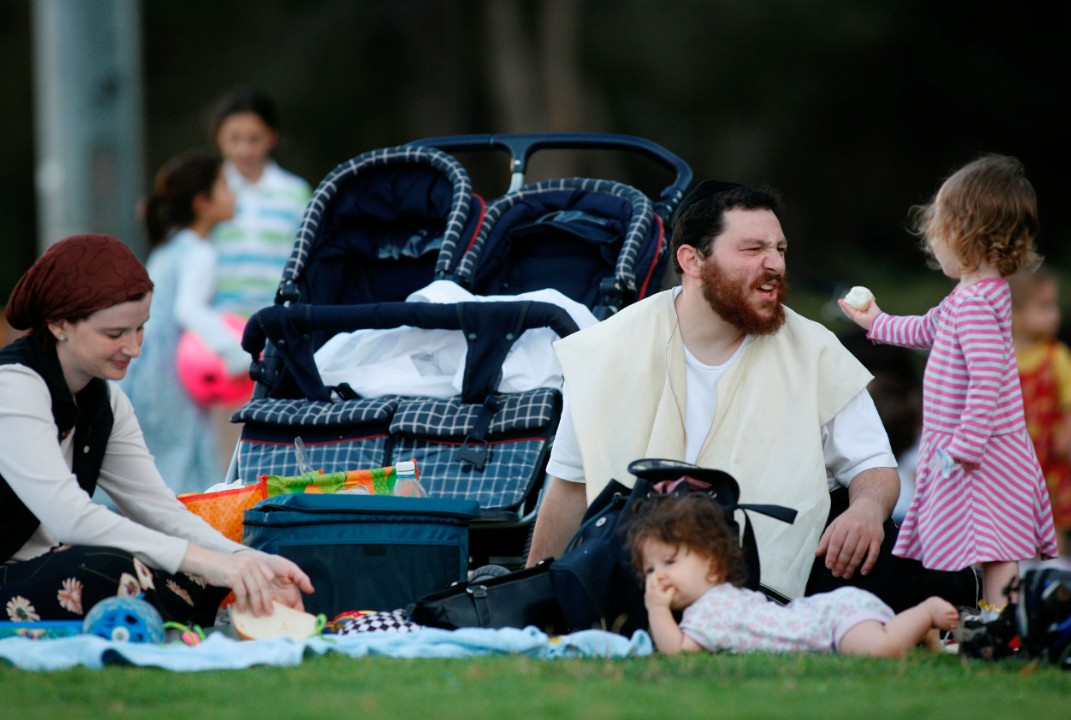Once and for All: How Does an Ultra-Orthodox Family Manage on 6,000 Shekels?
Around 50% of ultra-Orthodox families live below the poverty line, many with only one breadwinner. They must also marry off children, pay mortgages, and cover huge tuition costs. How do they do it? Discover the secret.
 (Photo: Nati Shohat / Flash 90)
(Photo: Nati Shohat / Flash 90)The poverty report by the 'Latet' organization was published this week, presenting a very grim picture, with more than 2 million poor people in Israel. When discussing those below the poverty line, it's hard not to look at the ultra-Orthodox sector, which in surveys and studies is always seen as having limited resources.
"How do they manage?" Many people ask themselves in wonder when they observe them from the outside. "How can you support ten children on a salary of 6,000 shekels? And send them to schools, marry them off, and even host grandchildren? How do they do it? How?"
To finally answer this question, we approached two leading professionals in the field – Michael Nachtailer, CEO of Agudah Ahat and advisor at Paamonim organization, and Nechama Perl, economic consultant and group leader specializing in working with ultra-Orthodox families. Together, they shed light on the data and offered some advice for anyone wanting to finish the month with dignity.
 Michael Nachtailer
Michael Nachtailer
Main Expense: Food
When trying to determine the average salary in the ultra-Orthodox sector, both experts point out the large salary range – with some earning only minimum wages, while others are self-employed with salaries in the tens of thousands. Nevertheless, Nachtailer emphasizes that relatively to the general public, the number of families below the poverty line in the ultra-Orthodox sector is significantly higher, and this is not just due to income but also the high number of family members. "Poor families have an average income of about 6,000 shekels per family, compared to 12% of non-ultra-Orthodox Jewish families, which is a huge gap, especially when you account for the children, which further expands the gap. This leads to more than 50% of ultra-Orthodox families living below the poverty line when compared to non-ultra-Orthodox Jews.
"According to 2012 data from the National Insurance Institute, the gross income of an ultra-Orthodox family stands at about 11,000 shekels, significantly lower than the gross income of a non-ultra-Orthodox Jewish family, which stands at about 17,000 shekels. Also, the gross income per person in an ultra-Orthodox family (about 4,000 shekels) is 46% less than the income per person in a non-ultra-Orthodox family (about 7,000 shekels)."
How do they reach this vast gap? According to Nachtailer, one of the main reasons is that in an ultra-Orthodox family, the main breadwinner is usually the woman. Although we have exceeded 50% of employed ultra-Orthodox men this year, still, in most families, the man supplements income with side jobs, in addition to a stipend from the Kollel, making the woman the primary earner.
If we try to segment the expenses of an ultra-Orthodox family, what do you think are their most significant expenses?
"In my opinion, the most significant expense for an ultra-Orthodox family that owns a house and has not yet married off children is food, followed by clothing," Nachtailer replies. "The ultra-Orthodox family that is not middle-class, meaning more than 50% of families in the ultra-Orthodox sector, spends most of their expenses on the most basic essentials of life - food and clothing."
Meanwhile, Perl points out several expenses that she considers significant: "Even before any other expense, there is the allocation for charity. I intentionally avoid using the word 'expense' because as it is known, 'tithe so you'll be rich'. Most families allocate 10% of their monthly salary to charity purposes, but I definitely see some who allocate a fifth. Then there is the item of expenses for food. These are very large-scale expenses because even families who earn little have the minimum they must spend, and on a monthly level, it sums up to a lot. Food expenses for a family with six members (parents + four children) necessarily reach thousands of shekels a month. There's no way to cut back on that. Interestingly though, people don't always notice how much their food actually costs them, and when I ask them how much they think their food costs, they answer: 2,000-2,500 shekels, only to discover they are spending over 5,000 shekels. This is an expense we barely notice because we are always going in and out shopping, sometimes sending the children, and don't sensibly see how it sums up to a large bill."
 (Photo: Flash 90)
(Photo: Flash 90)And what about tuition costs?
"Tuition costs certainly take a chunk out of the family budget and can amount to thousands of shekels a month. But of course, it largely depends on the children's ages. The expenses are most significant during yeshiva and seminar years."
Perl adds that unfortunately, there is also another expense that many ultra-Orthodox families face, especially noticeable among families with low incomes: "This is the cost of repaying loans and debts. Unfortunately, debt payments are often the result of past mistakes, like improper management, and now the debts continue to burden the family."
Know to Save
It's only natural that when a family spends most of its monthly budget on basic needs, there's nothing left for what is considered 'luxuries'. Indeed, Nachtailer notes that because of this, many vacation concepts in the ultra-Orthodox world are far from the norm in the general sector, and you can see, for example, that only 12% of the ultra-Orthodox sector go on vacations abroad, compared to 40% of the general sector. Also, car ownership exists in less than half a percent of the general population.
And where else do they save?
"When we talk about a family earning low sums, the concept of 'vacation' nearly doesn't exist, regardless of going abroad," Perl adds. "Even when they want to vacation, they find an alternative – vacation at the parents', or swap houses with siblings, in short – a vacation without cost or at very low cost. Regarding activities for children, the ultra-Orthodox sector knows how to limit itself. While parents of four children in the general sector might spend thousands on activities, in the ultra-Orthodox sector, there might be no activities at all, or some arrangement with a girl doing amateur activities at home for a few dozen shekels a month. This way people feel, on one hand, they haven't given up completely, and on the other hand – they aren't really spending the money."
The day-to-day might be understandable, but what about special times – the summer holidays, Tishrei holidays, and Passover? How does a large family manage during such periods?
"There's no doubt that the hardest periods are the holiday and vacation times," Nachtailer agrees, "not just for the ultra-Orthodox family, but especially for it. The number of eaters, the various mitzvot, each holiday according to its nature, the desire to honor the holiday with proper meals, inviting family, all these and more have a price tag."
 (Illustration photo: Flash 90)
(Illustration photo: Flash 90)And how do they really cope?
"On holiday eves, it's beautiful to see the mutual responsibility in the sector," Perl responds. "Towards every holiday, initiatives come out that greatly ease the public's burden, like sales of cheap disposable utensils, sales of boxes of chickens at cost, and more. These aren't just for the needy, but also for families who manage on their own but can save a lot thanks to these sales. Additionally, many people, even those earning well, simply take loans before holidays. They tell me: 'We pay for the Tishrei holidays from after Sukkot until Passover, and for Passover – from after Passover until Sukkot.'"
Regarding this, Nachtailer points out something interesting: "Holidays have a unique and strange characteristic – they come every year and never fail to appear, they're always there. So are vacations. Yet despite this, most of us are surprised by them, at least financially. Instead of thinking at Rosh Hashanah about Passover and setting money aside for it, we only think about Sukkot and the pit it left us, and instead of thinking about vacations at Passover, we're caught up in payments for yesterday's matzos... But herein lies the opportunity, in my view, because there's no doubt most of us fall into poor planning, but the wise learn from this lapse, check 'how much it cost them', and there's a clear budget for next year, which can be planned already half a year in advance."
Optimism and Faith
But the main thing that characterizes the ultra-Orthodox sector is undoubtedly the fact that although there is awareness and a high ability for reduction, for most families, it does not affect the joy of life. "I often meet families living very frugally, but they're not desperate or extinguished," Perl clarifies, "they don't see it as a tragedy and even manage to maintain optimism and good spirits. What leads to this is undoubtedly the faith in Hashem and the high human capacity that comes from people believing and trusting in Hashem. They truly and sincerely do not see money as the main thing in life, and I often meet families who really live from hand to mouth, but they have great hope and faith."
Additionally, she emphasizes that the ultra-Orthodox community is characterized by strong support – both at the family level and socially, through charity and gemachim. "Recently, I encountered two very moving stories – one is a friend of a family who wants to help them get back on their feet. He decided to grant the couple a financial loan, but with the condition of my accompaniment along the way, to see they really succeed in recovering. It warmed my heart so much. Another story I encountered is married children who, a few years after their marriages, have money of their own and now want to help their parents who paid so much for their weddings. They came to me to see how to do it right. I was truly, deeply moved."
And what about future savings – does an ultra-Orthodox family manage to save money in the end?
"I think the savings item in the ultra-Orthodox sector is the last on the list, and there's hardly anything left for it. But in my opinion, it's a crime not to save. This doesn't mean enslaving the entire salary to savings, but you can start small, and penny by penny will reach a large account. Savings should not be placed at the last item, as though it's the least important. People often say: 'if anything's left, we'll save', but if we don't strive in advance to save, then, for sure, nothing will be left."

